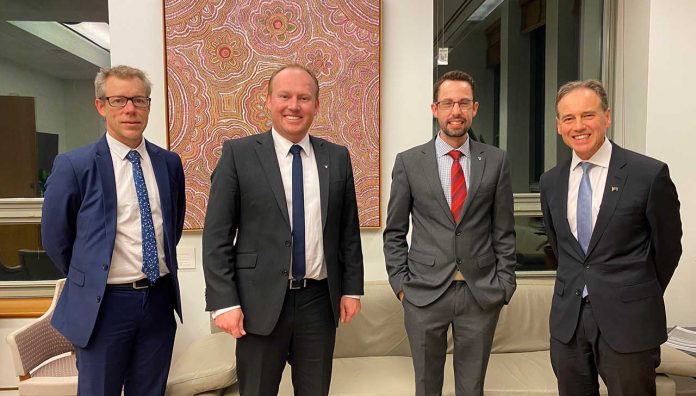
The long-awaited Seventh Community Pharmacy Agreement (7CPA) was signed last Thursday, providing Australians with better access to pharmacists and supporting the safe and quality use of medicines.
The new five-year deal, signed between the Commonwealth, the Pharmacy Guild of Australia and, for the first time PSA, and inked just 19 days before the previous agreement was due to expire, is expected to deliver $1.2 billion for patient-focused pharmacy programs.
The signed 7CPA is expected to be published by the Department of Health soon, including planned expenditure for the first 12 months of the agreement
Some details have been aired since last week. They include that:
- The majority of existing professional pharmacy programs will be continued.
- Plans to introduce ’60-day dispensing’, as recommended in 2018 by the Pharmaceutical Benefits Advisory Committee, are not part of the agreement after the COVID-19 shortage of medicines showed how the pandemic affected global supply chains at the usual 30-day supply.
- The $1 optional discount is retained, though not specifically mentioned in the agreement.
Increased investment
On Friday following the signing of the agreement, Federal Health Minister Greg Hunt said the funding, representing an additional $100 million in professional programs funding compared to the 6CPA, would help promote medicine safety.
‘Elderly Australians, people with chronic conditions and Australians on concession cards will benefit from this increased investment, through simplified and improved Community Pharmacy medication management and adherence programs, such as dose administration aids and medicine checks,’ he said.
‘There will also be greater support for regional, rural and remote pharmacies to deliver community pharmacy services, with reforms to the Rural Pharmacy Maintenance Allowance to adopt the Modified Monash Model for rural classification.’
The agreement also focuses on improving access to medicines for Aboriginal and Torres Strait Islander people, by expanding the number of people eligible for the Closing the Gap PBS Co-payment measure.
Promoting a cycle of care
PSA National President Associate Professor Chris Freeman said the certainty around medication management programs provided by 7CPA would help pharmacists tackle the issue of medicine-related harm in Australia.
This includes maintaining the recent changes to medicine management programs that enable a cycle-of-care approach by including follow-up appointments.
‘PSA fought incredibly hard to represent pharmacists in this agreement,’ A/Prof Freeman said.
‘This is a forward-looking agreement, flexible in its approach. It provides an opportunity for the implementation of significant policy reforms, particularly in the areas of aged care and mental health that will have a direct impact on patient health outcomes.’
Signed in the shadow of the COVID-19 pandemic, 7CPA also supports the uptake of electronic prescriptions to ensure safer and more efficient use and supply of medicines.
Supporting pharmacists
In a statement, Mr Hunt recognised the part community pharmacists play in improving the health of all Australians, particularly in recent months.
‘Community pharmacies have played a central role in supporting their community during the recent bushfires and have kept their doors open to support patients during the COVID-19 pandemic,’ he said.
PSA was a signatory to the agreement for the first time, which specifically recognises PSA as the custodian for the Code of Ethics, National Competency Standards Framework for Pharmacists, Professional Practice Standards and practice guidelines governing the professional practice of pharmacists in Australia.
A/Prof Freeman said this would enable PSA to help raise the bar for professional pharmacy practice in Australia.
‘PSA’s role in negotiations will achieve genuine and positive outcomes over the term of the agreement, support the vital role of pharmacists in primary care and enable them to practice to full scope, delivering better health outcomes for their patients,’ he said.
‘PSA would like to thank the Minister for Health, the Hon. Greg Hunt, who recognised our status as the peak body for pharmacists and custodian of professional practice and included us as a signatory to the Community Pharmacy Agreement.’
A/Prof Freeman also acknowledged the work of the Department of Health and the Pharmacy Guild of Australia. He said PSA would continue to work with Minister Hunt to support Australians and help pharmacists realise their potential as part of the wider health care team.
The 7CPA will come into effect on 1 July 2020 and be in place until 30 June 2025.



 Kelly Abbott MPS[/caption]
Kelly Abbott MPS[/caption]


 Owner of Canberra's Capital Chemist Southlands Louise McLean MPS.[/caption]
Owner of Canberra's Capital Chemist Southlands Louise McLean MPS.[/caption]

 Supplied by CSL Seqirus[/caption]
Supplied by CSL Seqirus[/caption]






